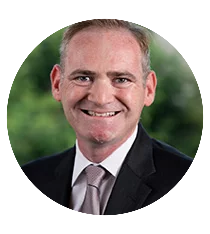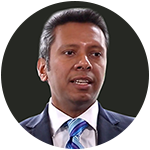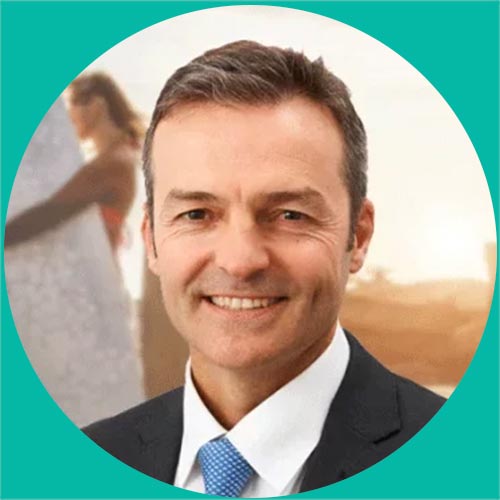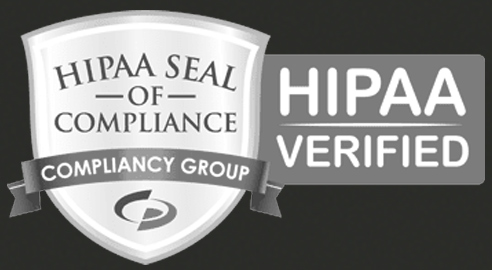Can you be authentic and non-robotic while still following a sales process?
Something we hear almost daily at LiveseySolar is the general anxiety people have about using process in their day to day communications. A common refrain is: “I don’t want to sound robotic!” Another favorite is: “I wouldn’t want to do anything scripted because I just can’t be myself that way – it’s unnatural!”
In today’s post, I’ll be answering a similar question posed by a delegate from the ESCRS 2014 conference this September in London. He asks:
People like to feel like they can be themselves when selling and not an automated robot spewing out scripts. How can we sell in a way that is authentic while still following a process?”
Checklists are critical for important tasks
Let’s first confirm the case for processes (and their most visible representation: Checklists). Checklists remind busy people what they have to do and reduce the likelihood of missing important steps. Even experts and seasoned professionals should use them – and the more important your job, the more important it is to use checklists.
One of the numerous examples is surgeon Atul Gawande’s The Checklist Manifesto: How to Get Things Right. He shares a story about “a checklist used at eight hospitals for carrying out the basic steps in surgery which led to an amazing 35 percent reduction in deaths and complications.”
In the hospitals where Gawande conducted his research, 80% of the surgeons involved were sold on the idea of checklists. 20% felt they were a waste of time and didn’t add value. Ironically, when the surgeons who resisted using checklists were asked if they’d want their own surgeon to use a checklist when performing an operation on them, 94% said they would!
Think your work is too important to use a checklist? Beyond medicine, checklists are used for some pretty important things, including:
- food service workers preparing food that won’t poison us
- safety experts inspecting nuclear power plants so they don’t melt down
- pilots flying commercial jet airliners so they don’t crash
- construction engineers managing large scale building projects so they don’t cave in on us
- software developers designing online banking systems so criminals can’t rob us blind
Checklists can help you have more fun
And it doesn’t even have to be life or death stuff, fun things you can use checklists for are:
- buying food when organising a dinner party for all of your friends
- making sure you have all your things ready for your holiday
- buying xmas presents for your friends and family
- making a birthday cake
- packing the kit you’ll use at a friendly football match
- planning a wedding
- buying a new house
Using a checklist for any of the above tasks doesn’t make you a robot – it makes you a less-stressed, more effective human being!
Checklists assist people when learning a new task, and help them train others in executing the task. Checklists can then provide a standard against which you can measure the performance of a task. Later this could also be used for evaluation and even recognition and rewarding purposes.
Whether the task is routine or infrequent, checklists help. Checklists help you delegate tasks more easily. They save time. They save money. They save face.
We at LiveseySolar easily have over 100 checklists that we follow when performing our tasks. The complexity of these tasks may range from simple to complex: from turning on the phones in the morning, to packing a training bag, to booking a flight, to carrying out a mystery call, to hiring a sub-contractor, to on-boarding a new training client. The lists go on and on.
Checklists can liberate you to be even more autonomous than you currently are
Yet, many people still resist using checklists. For some, a checklist is tantamount to admitting one is fallible. Some imagine a checklist will slow them down. Others might even suggest that a checklist makes them less autonomous, creative, or limits their authentic personality in some way.
Apart from reminding me to do things I’d rather not bother remembering, the thing I like most about checklists is how they liberate me to be more creative.
The very existence of a process I follow enables me to be more myself, because I don’t ever have to concern myself trying to remember what to do next. Instead, I go from step to step, bringing my energy and personality into every step before moving on to the next.
The best ways to sell, while not sounding like a robot, and use a process or checklist are:
- learn why each step exists – understanding why the step is important will lift your confidence while doing it
- practice the steps again and again until you become unconsciously competent
- make your steps interactive – for example: 90% of the sales process steps I teach require you to ask questions and listen to answers – not spew out prepared scripts
- follow the rules before you bend them – when you are 100% clear on the what kind of answers you are looking for, you can adapt the questions to better suit the way you ask them.
Far from sounding like robots spewing out scripts, sales people using my checklists are more confident, more creative, more authentic and more effective than those who don’t.
Related Posts
Meet our Co-Founders
We’re passionate about helping leaders of high-quality, growth-minded practice owners double their practice revenue

Rod Solar
Founder & Scalable Business Advisor
For over 20 years, I’ve helped ophthalmology entrepreneurs scale their private practices. I specialise in doubling revenue within three years by offering a proven framework, hands-on experience, and a team of experts who implement what works. We take the guesswork out of growth and scale, so you can focus on delivering exceptional patient care while maximising the value of your business.
LiveseySolar completely transformed the way we were approaching this… We’ve gone from having just the dream of having a practice to having a practice up and running with people making inquiries and booking for procedures… It’s extremely pleasing. We feel lucky we connected with LiveseySolar.
— Dr Matthew Russell, MBChB, FRANZCO, specialist ophthalmic surgeon and founder of VSON and OKKO

Laura Livesey
Founder & CEO
I’m the co-founder & CEO of LiveseySolar. I’ve developed powerful eye surgery marketing systems that increase patient volumes and profits for doctors, clinics, and hospitals, since 1997.
Rod and Laura know as much about marketing surgery to patients as I know about performing it. They are an expert in the field of laser eye surgery marketing. They know this industry inside out. I believe that they could help many companies in a variety of areas including marketing materials, sales training and marketing support for doctors.
— Prof. Dan Reinstein, MD MA FRSC DABO, founder of the London Vision Clinic, UK











